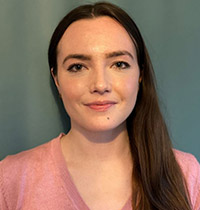It is students’ prerogative to determine how to use this time in line with their priorities and personal circumstances, say Gursharan Khera and Eleanor Pace
As the UK carries on its lockdown, individuals the nation over are continuing to acclimatise to a new way of life. Virtual conversations have replaced face to face interactions and the inescapable topic of discussion is still covid-19.
This pandemic is the most significant health crisis we have faced in over a century. As medical students, we have prepared for emergency situations as part of our training and, while the current situation is unprecedented, we automatically assumed that when the NHS is in need, it would be our duty to contribute. This same assumption is also made by the general public. Consequently, when relatives and friends, who usually reserve their interest for the odd gory anecdote, excitedly ask how we are helping, for many of us medical students the answer is hard to swallow . . . we are not.
While many medical schools have graduated final year students early so that they may bolster the workforce, the role of students in other stages of the programme has been less clear. Clinical placements have been cancelled and teaching has moved online, as numerous medical schools strive to enable students to sit their exams on time.
The decision to cancel clinical placements has been made with good reason, of course. Additional foot traffic in hospitals increases the risk of the virus spreading and represents a threat to everyone, including medical students. Furthermore, the variable and finite provision of personal protective equipment means that students should largely be assigned to patients who don’t have covid-19. However, the nature of the virus and availability of testing can make it difficult to identify those that fit this criteria. As the NHS is stretched to its limits, it is imperative that the future supply of junior doctors does not suffer. This means that students’ dedication to staying on track with their medical education—to ensure we are competent when our time comes—is more important than ever.
Any student volunteering needs to be confident that it will not be at the expense of their learning and ability to get through exams. Prior to the lockdown, many students made the decision to travel back to their family homes, which precludes volunteering at their usual teaching hospitals. Some students will be living with vulnerable family members who may be shielding, and therefore the risks of any potential cross-infection posed by volunteering must be taken into consideration. Coupled with the lack of clarity around what hands-on roles for medical students might involve, this means volunteering is not an option for some students, and a difficult decision at best for others.
Despite all of this, many medical students are still struggling with feelings of underlying guilt, compounded by the knowledge that our teachers and future colleagues are risking their lives every day. After all, watching an online lecture delivered by an emergency medicine consultant before their gruelling hospital shift just feels wrong when in the comfort of your own home, drinking yet another cup of tea.
It is hard to shake the internal assumption that everyone else in your peer group is probably volunteering on the frontline, and if you are not, then you are not rising to the call of duty. Speaking with peers indicates that this is not the case, however the pervading sentiment of guilt is widely shared by us all.
Students who volunteer will undoubtedly be a great help. However, we would argue that it is students’ prerogative to determine how to use this time in line with their priorities and personal circumstances. Maintaining the supply of future doctors is essential to the future of medicine and the strength of the NHS. It is therefore imperative that we do not succumb to the instinctive drive to help at the exclusion of all else, as this may end up doing more harm than good in the long term.
Medical schools nationwide are taking varied approaches to the role of medical students and their course progression during this pandemic. However, all bodies are undoubtedly acting to prioritise and balance the safety, education, and wellbeing of their students, and, where possible, effectively contributing to efforts to manage covid-19. In the aftermath of this pandemic, the analysis of these approaches and their outcomes will be vital to informing efficient and uniform protocols that can be adopted by all medical educational bodies in the event of future national health emergencies.

Gursharan Khera is a fourth year medical student at GKT School of Medical Education, King’s College London.
Competing interests: None declared.

Eleanor Pace is a fourth year medical student at GKT School of Medical Education, King’s College London.
Competing interests: None declared.
